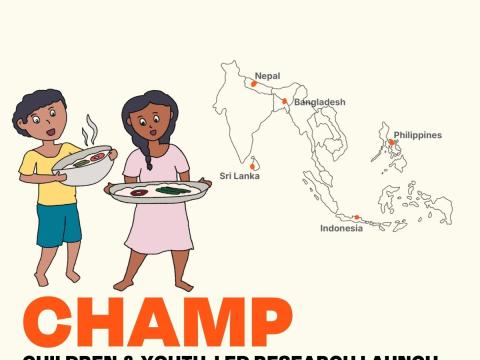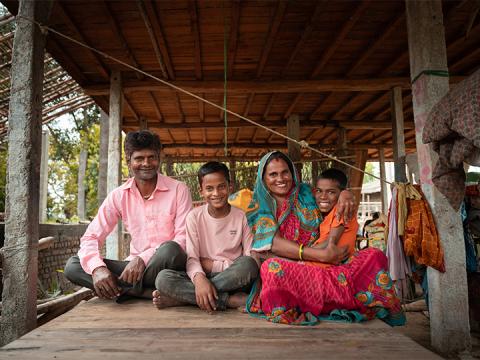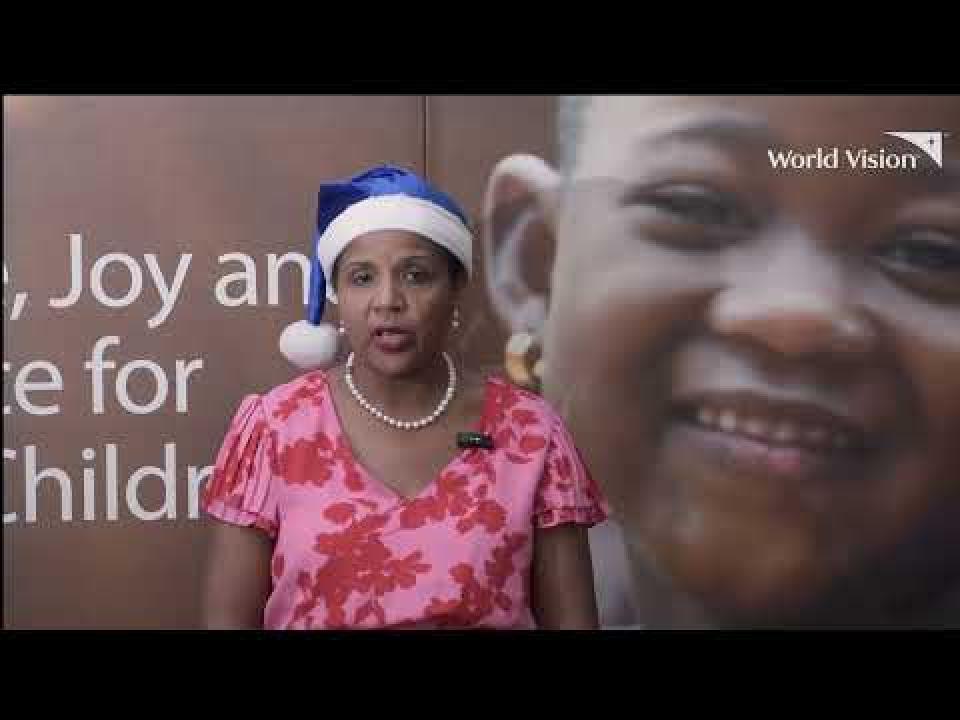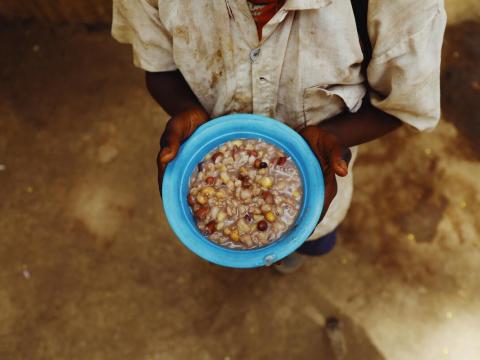
Contrast in a world of plenty
World Vision Brand and Campaign Specialist Luciana visits programmes in Tanzania and comes away with a new appreciation for the importance of clean water, school meals, and most of all admiration for the communities where World Vision works.
There I was, crying in the middle of a grocery store, staring at the stacks of bottled water, with all the flavours you can imagine.
I had just returned from Tanzania on my first trip to visit World Vision’s work and I couldn’t reconcile the contrast. The lack of everything I saw there, versus all the abundance we have here.
“What is all this water doing here? A grocery store is not the place to be!” I wanted to shout at the top of my lungs.
For me, having spent seven days meeting people who barely have access to a glass of water, it was painful to see that useless abundance.
Before I went to Korogwe, a five hour drive North of Tanzania’s capital Dar es Salaam, I thought I was ready, having been born and raised in Brazil. Growing up seeing poverty, children out of school begging for money at traffic lights, the struggle for basic needs that sometimes leads to violence and turns some of us into prisoners in our own homes.
“I’ll be ok”, I told myself before I left. But I was wrong…
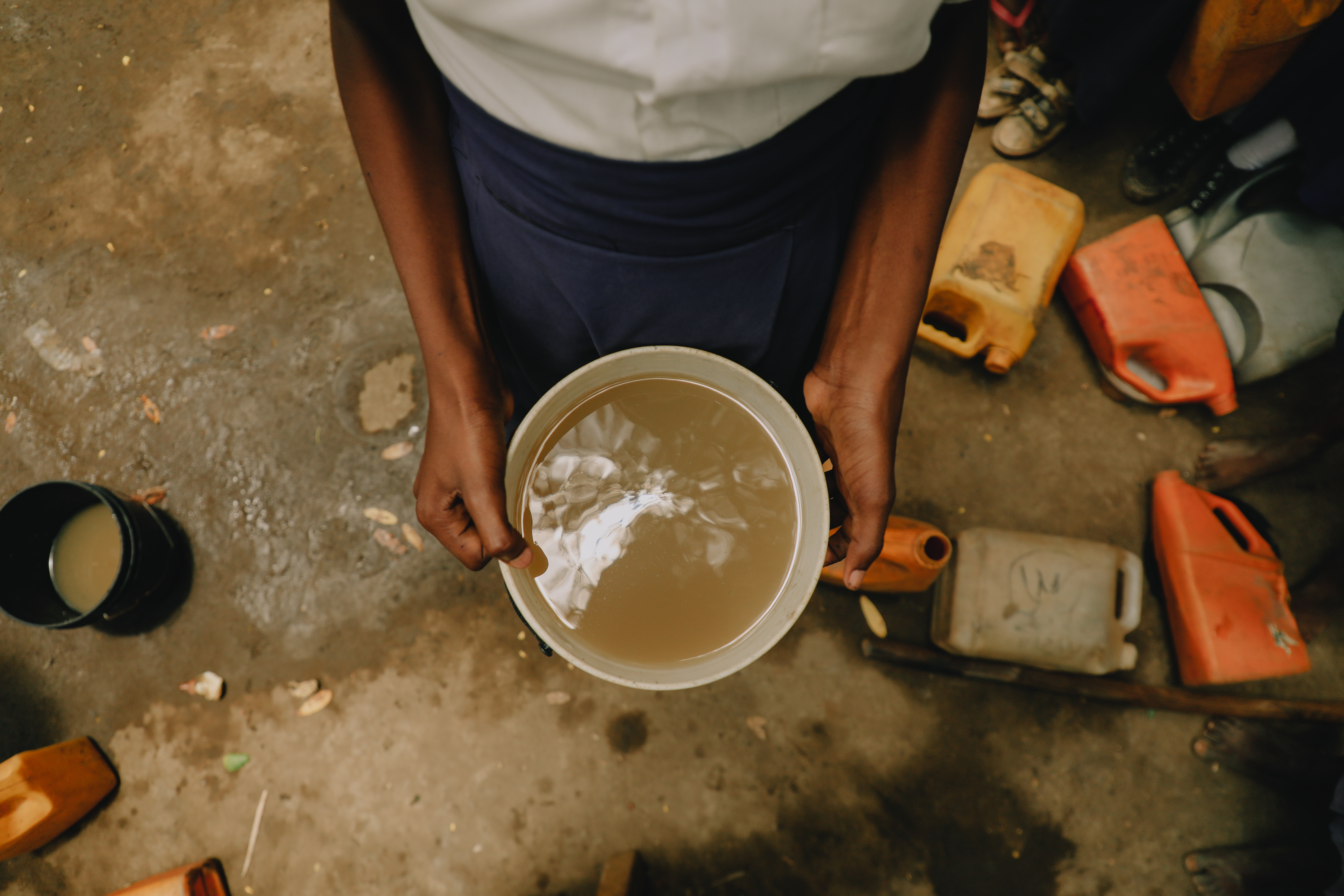
In Brazil, I lived in my ‘bubble,’ safe at home as part of a middle class family’. In Tanzania, I saw children and families’ struggles up close.
For weeks after I came back, I couldn’t shake the memory of the buckets of dark water I saw cooks at schools using to prepare the children’s lunch. I wouldn’t use that water for anything other than watering plants.
“Don’t worry; they’ll be fine. I ate food made with water like this too and here I am,” Alpha Aggrey Nsemwa, Social Media Manager from World Vision Tanzania told me as I rushed back to the car so no one would see me cry.
How is this absurd contrast allowed, I’ve been asking myself since I got home. When that dark water is all they have, and in many other parts of the world we choose which flavour we want our water to taste.
Dark water, I learned from my colleagues in Tanzania, is a rare supply in a lot of the communities in the country. Mostly, there’s no water at all. The country has been experiencing the worst drought in years and everything is dying there. The land, the trees, the animals… even the people.
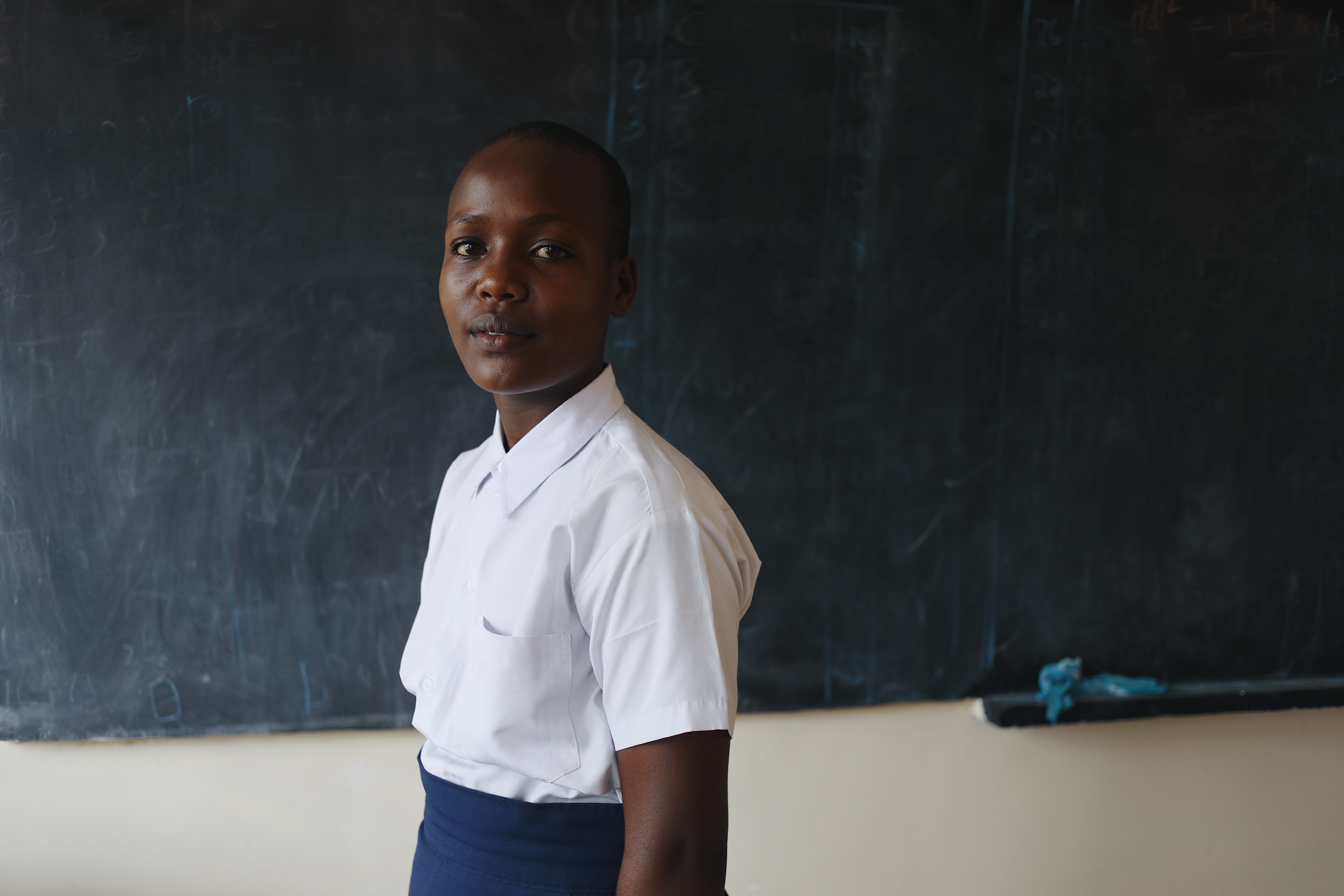
On the long drives between projects in the Korogwe and Tanga regions, poverty doesn’t give your eyes a break. It’s poverty, after need, after drought, on repeat.
But despite all of the need, by the end of my time in Tanzania, I was able to draw hope from the people I met, who are tougher than all of that.
Like Esther, a 16 year old girl from the Myunzi community. She leaves her house at 4am every morning to be at school at 8:30am. On her long four and a half hour walk (one way), she crosses a river where there are hippopotamus and where she’s afraid of men who hide in the bushes to harm girls who are walking alone. But fear doesn’t stop her. She continues her studies. “I want to be a doctor”, says Esther.
I was in awe of the resilience and determination from the women in the Mwivan community, who used the dark water and transformed it into beautiful pottery and textiles, creating a their pottery and textiles business into something so successful that they are able to support children from other communities. “With the training and support that we received from World Vision we have enough so we can share”, says the leader of the group.
I won’t forget the words of the two faith ministers we met, a Muslim and a Christian, that through World Vision’s peace work are now building together a community of collaboration and respect. “When he dies, I’ll go to his funeral”, says the Christian leader as a demonstration of ultimate respect to his Muslim friend.
Their resilience is nothing I was able to grasp when I used to describe resilience in my head before this trip. And it’s true that World Vision’s work is not going to solve all problems. But when you meet people who are impacted by the work, it not only makes sense to continue doing it, but also how critical it is. It’s a matter of life and death. Without the work, there’s no hope. Without hope, there’s no life.
It’s tough. It’s tougher than I thought.
But it’s possible.
For more information on World Vision's child sponsorship work in your country, please click here to be redirected.
Luciana Mendes is a Brand and Campaign Specialist at World Vision International. Now based in Quebec, Canada, she was born and raised in Brazil.
